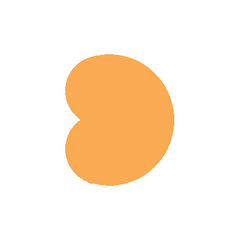User generated content: earn money or reward readers by publishing their name?
 Consumer or user generated content was a hype the last 12 months. It was considered the new thing in journalism, opened-up new ways to have readers and viewers participate in media and to get access to information close to consumers. However Ohmynews.com or NowPublic.com, the best known user-written publications, are not yet earning money by using consumers providing the news. One might question whether the motivation of readers or viewers of seeing their names in the press is a guarantee for interesting, credible and relevant news. There is quite some research that confirms that Internet news is not perceived as trustworthy as printed news, and consumer generated news might just prove this point. BlueLithium - a research branch of Yahoo - concluded on the basis of 1.7 billion impressions from 716 ads that although the cost-per-conversion was lower for ads placed on user generated sites the conversion level on non-user generated sites was 32% higher. These figures also prove the point of the importance of branded conten.
Consumer or user generated content was a hype the last 12 months. It was considered the new thing in journalism, opened-up new ways to have readers and viewers participate in media and to get access to information close to consumers. However Ohmynews.com or NowPublic.com, the best known user-written publications, are not yet earning money by using consumers providing the news. One might question whether the motivation of readers or viewers of seeing their names in the press is a guarantee for interesting, credible and relevant news. There is quite some research that confirms that Internet news is not perceived as trustworthy as printed news, and consumer generated news might just prove this point. BlueLithium - a research branch of Yahoo - concluded on the basis of 1.7 billion impressions from 716 ads that although the cost-per-conversion was lower for ads placed on user generated sites the conversion level on non-user generated sites was 32% higher. These figures also prove the point of the importance of branded conten.
Newspapers are looking at smarter ways to use consumers as a source of information. I read about the Guardian that is looking for experts among the readers as they know that somewhere on the Internet somebody can provide answers. This might be very helpful for example for travel advice. TED, a Dutch multi-media platform for youngsters - offers a mix of user generated content and journalist content for their free newspaper, interactive online platform and TV channel. The free newspaper has a total circulation of 150.000 and is distributed via "ambassadors" at schools. TED uses the interactivity with readers to the benefit of advertisers who want test new products in TED lab. The largest Dutch newspaper De Telegraaf uses a very different model, it set up a dedicated website for local news, opinions and emotions provided by readers. The site WUZ.nl is a continuation of the readers letters item in the printed newspaper. Access to local news is extremely easy: just type in the postal code. Although an interesting initiative this might also fall short in attracting enough readers and advertisers to make it profitable.



No comments:
Post a Comment